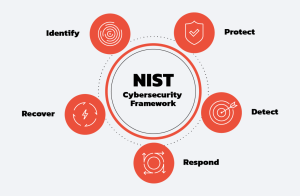The most commonly used desktop operating
systems (OS) today are Windows, by Microsoft. Apple’s iOS and several other outlying
operating systems created by competitive software types including Ubuntu. All
of these operating systems are in a fierce battle for market share and all want
to be most user-friendly. Ubuntu has one advantage because the number of users
is much less when compared to Windows and iOS, which is why hardly anyone tries
to hack into the system. There is little hacking gratification from cracking
software that is used by a smaller population which is why the more popular
your OS is the more likely you are to be hacked; the wider the use, the higher
the risk of hacking.
The
Issue of Hacking and Ransom Calls
The serious issue at hand is that because
Microsoft is leading the OS industry, it faces the greatest threat of thousands
of hackers trying to bypass firewalls and security almost daily. The hackers
have the simple but inexplicable motive of causing havoc among the masses. Some
have a more specific cause, such as wanting to bring down the organization for
some personal gain or vendetta. Sadly many hackers today are unofficially
employed by competing firms so that they can take advantage of the security
weakness of one company’s software. The latest versions of Windows, and Windows
8, are in fact a very efficient OS’ and have excellent retooled security.
However, a Germany based spam malware is now
being distributed via email and other download sources that might be able to
infect the boot record of computers running on Windows. If the hack is
successful in doing so, then it is possible that the hacker will have the
ability to access your computer. There have already been a few cases where hackers
have managed to see this process through and have asked for a ransom before
unlocking the user’s computer once more. These are the new pirates and the new
realities of our virtual world.
How
the Malware Gets into Your System
The idea of millions of people in the world
having to pay a ransom to use a system is quite scary, and worse than that is
the possibility of external people viewing private or confidential information
stored as soft copies on a Windows based computer.
The malware that is being discussed here is
being sent through emails as spam in German. It is possible that the choice of
the language is to throw off security and cause them to look for sources in
Germany. The origin of the malware has not yet been discovered, however,
Microsoft is currently working on how to prevent this virus from infecting
systems. Lets hope they figure it out before this gets out of hand.
The malware was first found by Trend Micro, a
small company that is into the tech business, and the code name that has been discovered
is BKDR_MATSNU.MCB. As always, it is best to be weary of spam emails that come
from unknown sources. The malware works only if you download the
attachment sent in the mail. Although most people generally avoid such
downloads, the mail has a subject and body that mentions that the person
receiving the email has to pay up a certain amount of money, and that the
details of the recipient are found in the attachments. This part generally has
the effect of coaxing people to check the mail just to make sure.
Don’t do it!
If you get a bill from someone as an attachment you don’t know, do not
open any attachments. If you have a
valid concern or curiosity, find an alternative way to validate the claim. Do a web search for the company or try to find
a phone number. If you cannot locate a
legitimate source online, you can assume it was an attempted hack.
About the Author:
Seth Williams has been writing with Firebox Training, since July, 2011. He writes on many topics across IT programming,
training and developments in the industry. Through spreading wisdom across
forums and tech blogs, Seth has realized an open source approach to training
professionals across the globe is the way to go.
Note: If you want to learn more about Linux and Windows based Penetration testing, you might want to subscribe our RSS feed and Email Subscription or become our Facebook fan! You will get all the latest updates at both the places.
























